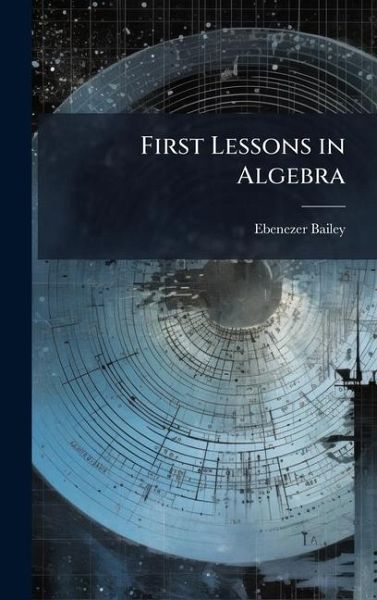
First Lessons in Algebra
Versandkostenfrei!
Versandfertig in über 4 Wochen
31,99 €
inkl. MwSt.
Weitere Ausgaben:

PAYBACK Punkte
16 °P sammeln!
"First Lessons in Algebra" by Ebenezer Bailey, originally published in 1841, provides a foundational introduction to the principles of algebra. Designed for students encountering algebraic concepts for the first time, this classic text offers a structured approach to learning, emphasizing clear explanations and practical exercises. Bailey's method focuses on building a strong understanding of basic operations and equations, making it an invaluable resource for both students and educators. Though written in the 19th century, the core concepts remain relevant, offering insights into historical t...
"First Lessons in Algebra" by Ebenezer Bailey, originally published in 1841, provides a foundational introduction to the principles of algebra. Designed for students encountering algebraic concepts for the first time, this classic text offers a structured approach to learning, emphasizing clear explanations and practical exercises. Bailey's method focuses on building a strong understanding of basic operations and equations, making it an invaluable resource for both students and educators. Though written in the 19th century, the core concepts remain relevant, offering insights into historical teaching methods and the enduring principles of mathematical education. A valuable addition to any mathematics education collection. This work has been selected by scholars as being culturally important, and is part of the knowledge base of civilization as we know it. This work was reproduced from the original artifact, and remains as true to the original work as possible. Therefore, you will see the original copyright references, library stamps (as most of these works have been housed in our most important libraries around the world), and other notations in the work. This work is in the public domain in the United States of America, and possibly other nations. Within the United States, you may freely copy and distribute this work, as no entity (individual or corporate) has a copyright on the body of the work. As a reproduction of a historical artifact, this work may contain missing or blurred pages, poor pictures, errant marks, etc. Scholars believe, and we concur, that this work is important enough to be preserved, reproduced, and made generally available to the public. We appreciate your support of the preservation process, and thank you for being an important part of keeping this knowledge alive and relevant.


